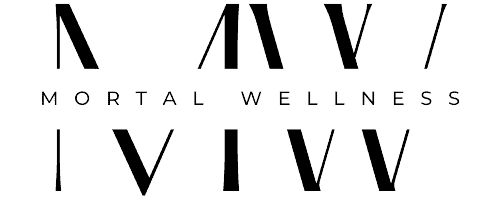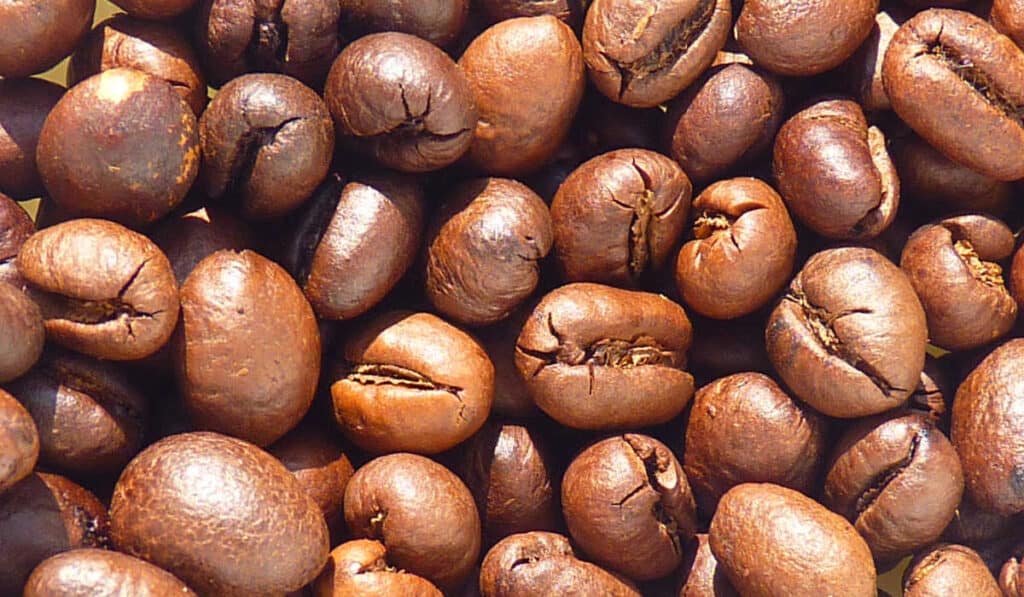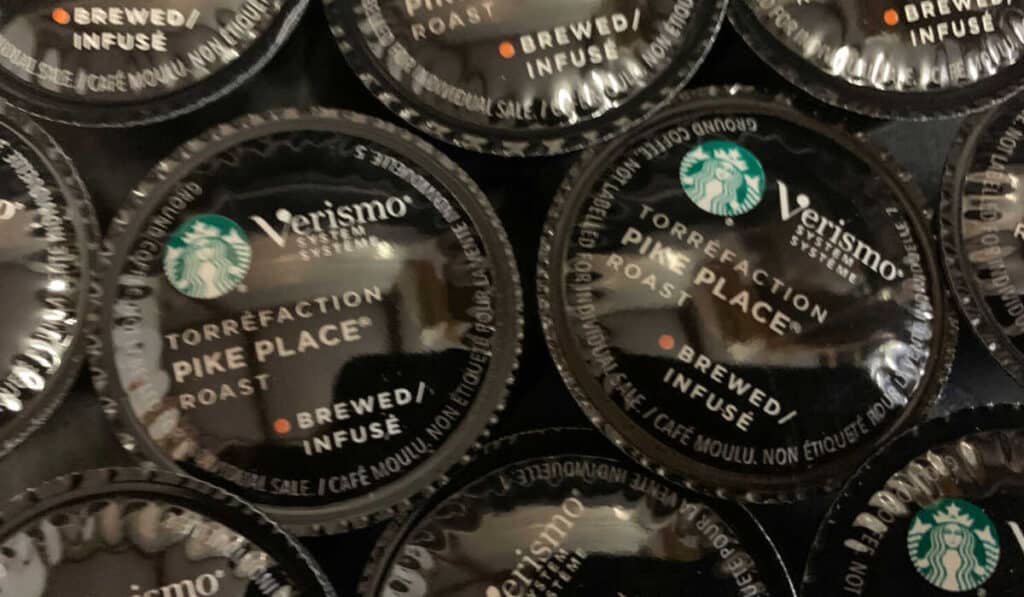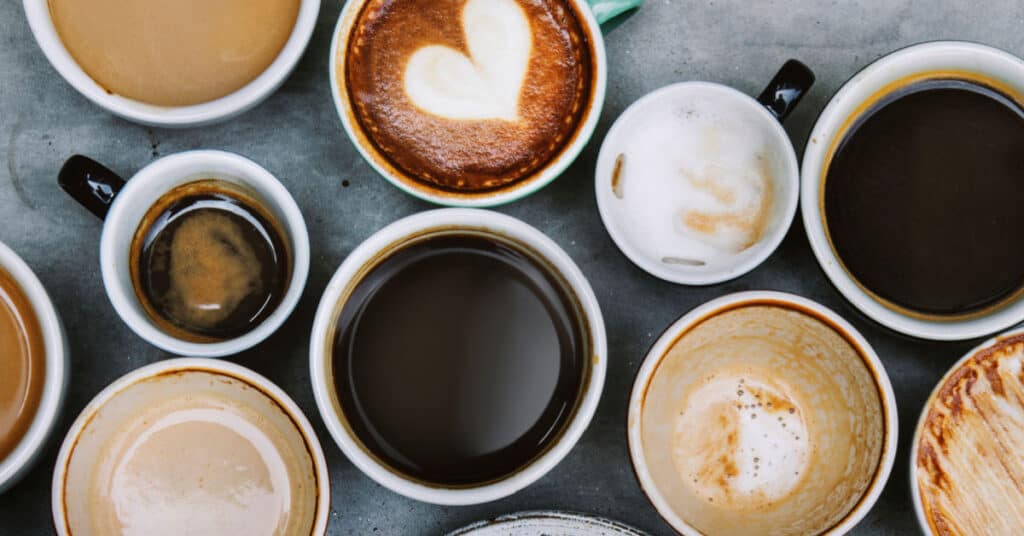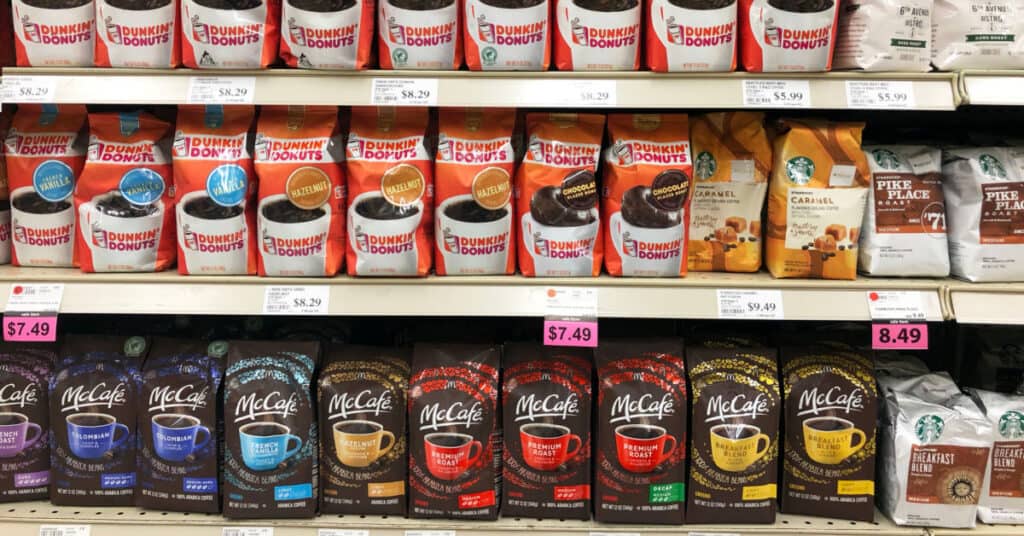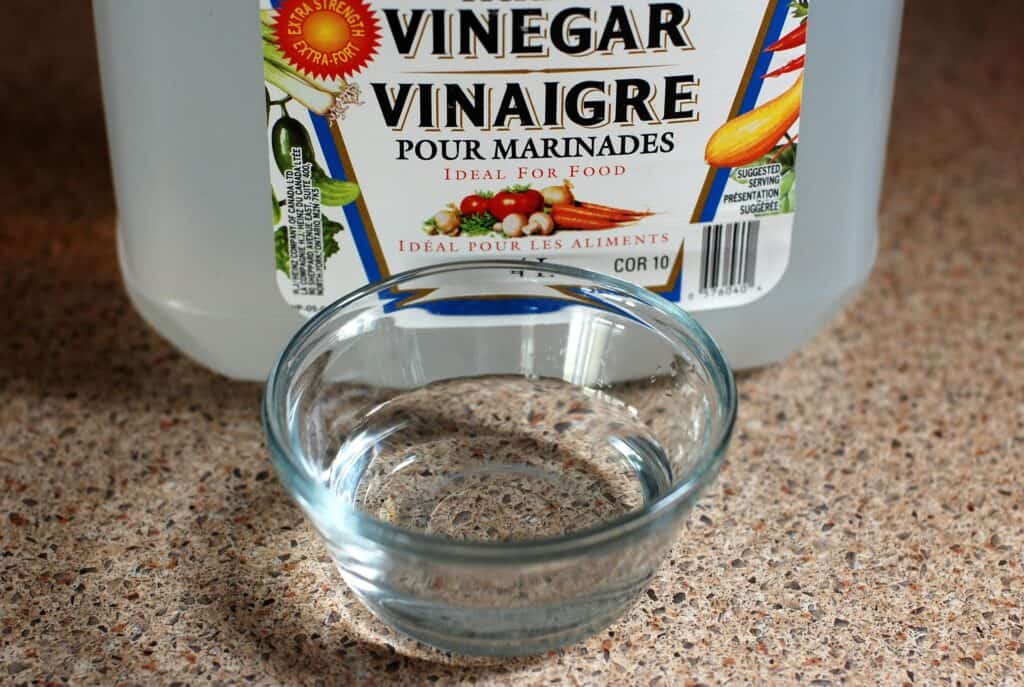As an Amazon Associate I earn from qualifying purchases.
I remember the first time I had a BANG! energy drink. Unicorn Rainbow flavor. Whatever that is.
I was going through a particularly stressful time and had been having huge amounts of caffeine to maintain my schedule of school, night-shift, husband/dad duties, and repeat.
BANG! was one of the first and most successful drinks to hit the market with 300mg of caffeine (twice what’s in a normal energy drink) but I figured it wouldn’t be new to me. I had been consuming upwards of 800mg of caffeine per day and, with my high tolerance, felt that it wouldn’t do much more than keep me awake.
Well, long story short, I never drank one again. Within 30 mins of finishing it, I felt sick. Not in the usual way of having too much caffeine though. I literally just felt disgusting. My stomach just felt…unhealthy…and I developed a nasty headache.
I thought to myself at the time, noone needs this much caffeine at once and, if I think I do, I probably need to rethink my tolerance and caffeine intake.
While I didn’t scale back my caffeine use immediately after that, it put me on the path of trying to learn what the healthiest source of caffeine is so I could at least avoid feeling like garbage and damaging my gut/body.
After all, I reasoned that if I was going to be relying upon an addictive drug to power me through my day, it might as well be one that wasn’t killing me slowly.
The result of my research was pretty surprising. I expected coffee or green tea to come out on top but it just wasn’t meant to be.
The healthiest source of caffeine is unsmoked Yerba Mate. It has higher levels of antioxidants than Green Tea, less harmful acid than coffee, and lower caffeine content than either. Consumption of Yerba Mate has been shown to have a positive effect on bone density, blood sugar, and cholesterol.
“The Healthiest Source of Caffeine” Paradox
Before we get to what is actually the healthiest source of caffeine, we should probably address a huge flaw in the reasoning of anyone who would ask that question.
Caffeine is not healthy.
No scientiest that isn’t funded by a drink company has ever contended that caffeine is actually good for you. Rather, they’re always doing research to find out if it’s actively bad for you and how much you can intake without doing harm to yourself.However, the research has already been done. Caffeine consumption has been linked to anxiety, digestive issues, insomnia, muscle degradation, high blood pressure, increased heart rate, fatigue, lack of focus, decreased mental clarity and increased urination. Not to mention that’s it’s addicting and messes you up royally when you withdraw from it.
And that’s not just in excess. Nearly everyone has at least one area of sensitivity that is affected by caffeine consumptions. What’s more, there is nobody out there that can tell you what amount of caffeine is or isn’t healthy. However, common sense tells me that more is worse.
So, I won’t actually be answering that question of what the healthiest source of caffeine is. However, I won’t leave you empty handed.
Instead, let’s talk about what the least unhealthy source of caffeine is. That is, since caffeine counts as a negative in any drink, what source of caffeine has enough health benefits to either counteract or completely overwhelm the side effects of caffeine consumption.
I’ll give you a hint: BANG! energy doesn’t make the cut.
The Contendors: Most Common Caffeine Sources
64% of Americans drink at least one cup of coffee every day. However, it’s not even close to being the world’s most popular source of caffeine. In fact, according to British geographer David Grigg, consumption of tea beats out coffee 3-to-1.
What type of caffeine you consume, then, is heavily influenced by where you live and your demographic.
The most commonly consumed sources of caffeine throughout the world are: (not necessarily in order since it doesn’t speak to their level of health)
- Coffee
- Tea
- Caffeine Pills/Caffeinated Supplements
- Energy Drinks
- Chocolate
Right off the bat, we could probably chuck out caffeine pills and energy drinks. Caffeine pills have no health benefits and energy drinks are not only packed with sugar (or artificial sweeteners) but they have shown to disrupt sleep, cause weight gain, spike your blood pressure, increase the chance of mental health problems, rot your teeth, and even damage your kidneys. Hard pass.
Coffee vs. Tea: Which is a Healthier Source of Caffeine?
Before we through chocolate into the mix, let’s talk about the two heavy hitters in the world when it comes to getting your daily (or hourly) fix: coffee and tea.
The Health Benefits (and drawbacks) of Coffee
- Coffee inhibits adenosine (an inhibitory chemical) in your brain which leads to a feeling of increased energy. Note that the caffeine doesn’t actually give you energy, it just makes your body think you have more energy. Your brain then reapportions what energy you have to be used up now leaving nothing for later (hence the crash).
- Improved mood. There are dozens of studies reporting how caffeine improves no only things like auditory vigilance and visual reaction time, but can actually improve your mood. No surprise there. When I was drinking large amounts of caffeine I couldn’t feel normal or happy without a hit of caffeine. I have yet to see a study on the change in mood when people who do not consume caffeine ingest it.
- Coffee can increase your metabolic rate (or at least the caffeine in it can) and lead your body to burn more fat. This effect decreases as caffeine use increases and you become tolerant.
- Caffeine has 9 different acids which give it a pH of around 5. This is why some people experience acid reflux, gastric ulcers, and IBS related to coffee consumption. Some of these acids (such as chlorogenic acid) have been shown to have significant health benefits.
- The huge number of antioxidants in coffee (and the rate at which it is consumed) meant that coffee contributes more antioxidants to the average American’s diet than fruits and veggies combined.
Overall, coffee is not a killer. If you do not become reliant on it and enjoy a couple of cups on an infrequent basis, it can be a “healthy” source of caffeine that provides other benefits to your diet.
However, be aware that a “cup of coffee” as reported in all the studies on caffeine means 6oz. It’s not unusual for a mug or tumbler to be 14oz or more which means many people are consuming 8 cups of coffee per day without even realizing it.
Add to that the fact that drinking coffee black is only for cowboys and that adding anything to coffee to make it more enjoyable typically decreases it’s health benefits.
The majority of people can drink moderate amounts of coffee (meaning fewer than 4 cups) per day which some moderate benefits and few side effects beyond caffeine addiction and tolerance. However, the differences in caffeine metabolism may explain why so many people have an adverse effect to coffee, no matter how much they drink.
The Health Benefits (and drawbacks) of Tea
In the majority of studies, the healthiest tea found has no caffeine at all. Hibiscus tea has the highest level of antioxidants in any recorded drink but it doesn’t caffeine and that’s what you’re here for after all.
When it comes to caffeinated tea, we will be focusing on 2 main options: The teas of the canella sinesis plant (green tea, black tea, and white tea but mainly just green tea…) and Yerba Mate.
The Healthiest Caffeinated Tea
When it comes to the world’s healthiest energy tea, Green Tea is the first thing on everyone’s mind. It has a moderate amount of caffeine at about 1/2 of what coffee has and fits right in between white and black tea.
The other advantages of green tea are that it is rich in polyphenols (natural compounds which can reduce inflammation and help fight cancer) and a natural antioxidant called EGCG (ecpigallocatechin-3-gallate) that helps prevent cell oxidation and damage from free radicals.
However, there is another tea on the market which claims to be even healthier: Yerba Mate.
Yerba Mate is a popular drink in South American that is only just catching on in the US and other areas of the world. It is traditionally enjoyed out of a gourd with a metal straw (called a bombilla) but most people (including myself when I drink caffeine) brew it from a tea bag or loose leaf.
Not only does Yerba Mate have a higher antioxidant count than Green Tea, but it also has some beneficial acids (as opposed to coffee) that turbocharge its antioxidant power and allow our bodies to use them more efficiently.
Yerba Mate has been shown to:
- Control blood sugar and help with type 2 diabetes
- Kill unhealthy bacteria
- Attack cancer cells
- Lower LDL (bad) cholesterol
- Reduce hypertension
- Promote a healthy heart by clearing arteries
Even with all those health benefits, some people remain afraid of Yerba Mate. The main reason is that some old research showed that there seemed to be a connection between Yerba Mate and cancer. However, the newest research shows that this is not the fault of the tea itself but the way it is dried (it’s typically smoked). If you’re interested in Mate, be sure to get a fresh/unsmoked variety to avoid this problem.
In short, both Green Tea and Yerba Mate are very healthy options and both of them edge out coffee in terms of health benefits and lower caffeine content (a plus).
Eating Chocolate for the Caffeine
I probably don’t even need to get into any health benefits for you to agree that chocolate is the best source of caffeine. It’s chocolate after all. However, even though it comes with a laundry list of benefits, it has one main drawback (for most people) which is the concentration of caffeine.
To get the equivalent of one cup of coffee, you’d have to eat 4oz of 70% dark chocolate (the darker it is, the higher the caffeine content). The main drawback should be obvious here: huge amounts of sugar and over 600 calories. Not to mention that most adults would end up consuming half a pound or more of chocolate every day to meet their caffeine “needs”.
However, let’s give chocolate a fair shake and talk about some of the health benefits. Remember though, these only apply to dark chocolate as milkier chocolate has high levels of fat, sugar, and dilutes the healthiest ingredient (cocoa beans).
If you’ve seen articles extolling the virtues of dark chocolate you probably overestimate how health it is. The main reason for this is that almost every report of its nutrition looks at a serving of 3.5-4 ounces which one of those full-size bars you get at the store. Nobody should be eating 1/4lb of chocolate per day, dark or not.
However, since using that serving size seems to be the trend, here are some of the health benefits of 4oz of dark chocolate:
- Rich in fiber, magnesium, iron, manganese, and copper
- More antioxidant power than any known fruit (including blueberries and the much-lauded acai berries)
- Lowers blood pressure and bad cholesterol
- Reduces risk of heart disease
- Increases blood flow to the brain, improving focus and memory
Verdict:
Due to its host of health benefits and low caffeine content, dark chocolate may very well be a contender for the title of Healthiest Source of Caffeine. However, since most people looking for a healthy caffeine source ingest (or intend to ingest) several hundred milligrams of caffeine per day, chocolate isn’t a realistic source for most people’s stimulant needs.
And the Healthiest Source of Caffeine Is….
So it should be obvious at this point both because of the arguments I’ve made (and the spoiler at the top of the article) that I believe Yerba Mate to be the healthiest source of caffeine, followed by Green Tea, followed by coffee. If you don’t like any of those options, you probably shouldn’t be utilizing caffeine.
However, all is not lost. Did you know that people who detox from caffeine experience more energy, better sleep, improved motivation, happier moods, and more? The problem is, most people quit coffee or caffeine for a week or two and go back to it when they don’t feel better. It can take months to fully detox from caffeine if you don’t know what you’re doing. If you want to give it a try, check out our caffeine detox guide by clicking here!
Whatever you decide about caffeine or where to get it, may you crush your goals and get all the work done you need to!
How To Sweeten Cold Brew Coffee (3 Quick & Healthy Ways)
In the entrepreneur circles that I run in there you’d think that we’d wear out…
Peaberry vs. Regular Coffee Beans – Are They Really Better?
When it comes to coffee you feel like you know what you’re talking about. You wouldn’t necessarily…
3 Best Alternatives To Starbuck’s Discontinued Verismo Pods
Want to hear a cruel joke? What if my favorite coffee company released a pod…
Flat White vs. Latte: What’s The Actual Difference?
I have some internal demons. Two of them to be precise. One of them demands…
What is the Shelf Life for Different Types of Coffee?
It’s no secret that the people of the world waste a lot of food. However,…
7 Ways To Clean Your Coffee Maker Without Vinegar (At Home)
You’ve invested in a decent coffee maker (a Zojirushi, hopefully), treated yourself to high-quality beans,…
